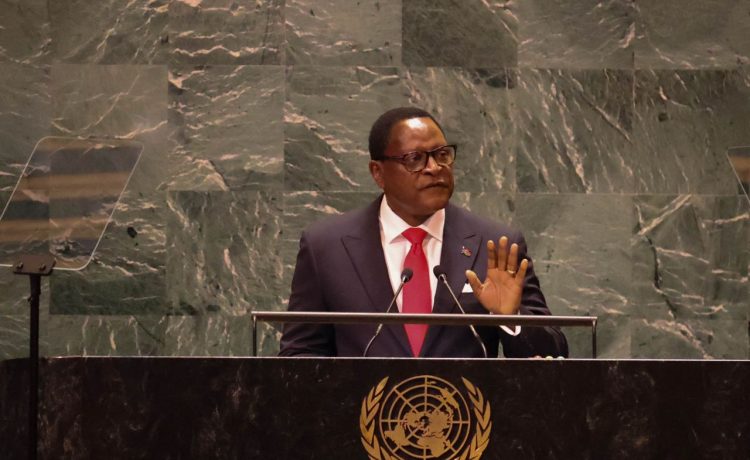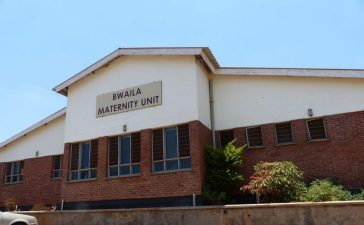A day after the main UN General Assembly event was opened at the UN headquarters, Malawi has executed its task of the main event, reiterating calls that were highlighted during the last sitting: a space for two seats for Africa at the coveted UN Security Council.
In a powerful address at the 79th United Nations General Assembly, His Excellency Dr. Lazarus McCarthy Chakwera, the President of the Republic of Malawi, called for urgent reforms to the United Nations Security Council, emphasizing the need to give Africa two permanent seats with veto power.
“The time to fix this is now,” declared President Chakwera, highlighting that this reform would strengthen the voice of African nations on critical issues. He noted that he was “delighted” to hear support for this change from both President Biden of the United States and President Xi Jinping of China.
The Malawian leader underscored the vital role of multilateral cooperation, citing numerous examples of how international partnerships have facilitated Malawi’s development progress in areas such as infrastructure, healthcare, and climate change response.
“If the future belongs to nations that know how to leverage the power of international cooperation, then the future belongs to Malawi,” Chakwera stated underscoring that; “It is in fact this foundation of international cooperation that we have built on to actively engage in intergovernmental negotiations on the Pact for the Future that we are fully endorsing at this 79th Session of the General Assembly”.
However, he expressed concern that the current global system of multilateral institutions is “too slow, too inefficient, too monolithic, and too undemocratic” for the swift and tailored interventions needed by developing countries like Malawi.
The Malawi leader warned that the refusal to address issues of equal representation and climate financing could lead to a “spreading debt crisis in the developing world” that would threaten global financial stability.
“As a result of our refusal to honour climate financing pledges or link them to debt relief, the debt-to-GDP ratios in developing countries like Malawi are growing at an alarming rate, posing a significant threat to global financial stability. If this is not fixed, those who keep us in a state of perpetual debt when they have the resources to cancel those debts should make no mistake: the spreading debt crisis in the developing world is a cancer that will make your own economies unsafe. So the time to fix this is now”.
Addressing the theme of competition between nations, Chakwera emphasized the need for fair rules and stronger governance institutions to ensure equitable access to resources, markets, and technology. He cautioned that the absence of equity is at the root of unwinnable conflicts around the world.
“If governance is weak here, there will be no one to regulate the collaboration and competition between nations in an equitable manner,” Chakwera said, underscoring the urgent need for reform to make the United Nations stronger and more effective.













